Filter by
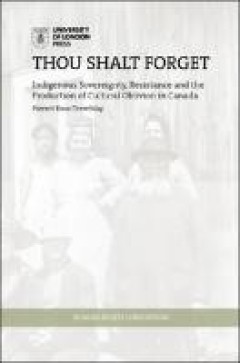
Thou shalt forget : indigenous sovereignty, resistance and the production of …
The first chapter contains some theoretical reflections on cultural oblivion as well as background information (mostly from documentary sources) about the Essipiunnuat and the Salmon War. Chapter 2 identifies the central elements that have contributed to the occurrence of the Salmon War, according to those taking part. These went beyond their own subjectivity. Th…
- Edition
- -
- ISBN/ISSN
- 9781912250424
- Collation
- xiv, 284 : ill.
- Series Title
- -
- Call Number
- 305.800971 PIE t
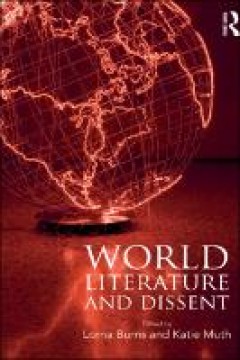
World literature and dissent
World Literature and Dissent reconsiders the role of dissent in contemporary global literature. Bringing together scholars of world and postcolonial literatures, the contributors explore the aesthetics of resistance through concepts including the epistemology of ignorance, the rhetoric of innocence, the subversion of paying attention, and the radical potential of everydayness. A…
- Edition
- 9
- ISBN/ISSN
- 9780203710302
- Collation
- viii, 204 p. : ill.
- Series Title
- -
- Call Number
- 809.933581 BUR w
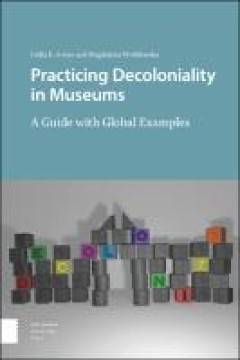
Practicing decoloniality in museums : a guide with global examples
The cry for decolonization has echoed throughout the museum world. Although perhaps most audibly heard in the case of ethnographic museums, many different types of museums have felt the need to engage in decolonial practices. Amidst those who have argued that an institution as deeply colonial as the museum cannot truly be decolonized, museum staff and museologists have been approaching the issu…
- Edition
- -
- ISBN/ISSN
- 9789048554836
- Collation
- 125 p.
- Series Title
- -
- Call Number
- 069 ARI p
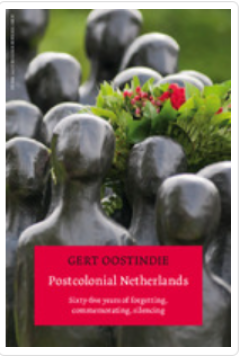
Postcolonial Netherlands : sixty-five years of forgetting, commemorating, sil…
The Netherlands is home to one million citizens with roots in the former colonies Indonesia, Suriname and the Antilles. Entitlement to Dutch citizenship, pre-migration acculturation in Dutch language and culture as well as a strong rhetorical argument (‘We are here because you were there’) were strong assets of the first generation. This ‘postcolonial bonus’ indeed facilitated their int…
- Edition
- -
- ISBN/ISSN
- 9789048514021
- Collation
- 290p.: ill.
- Series Title
- -
- Call Number
- 940.5 OOS p
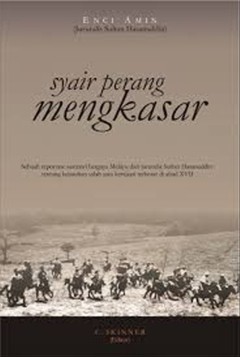
Sja'ir perang Mengkasar
- Edition
- -
- ISBN/ISSN
- 9789004286047
- Collation
- -
- Series Title
- -
- Call Number
- 959.84021 ENT s
- Edition
- -
- ISBN/ISSN
- 9789004286047
- Collation
- -
- Series Title
- -
- Call Number
- 959.84021 ENT s
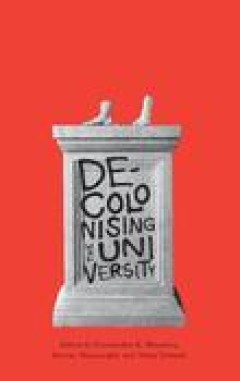
Decolonising the University
In 2015, students at the University of Cape Town demanded the removal of a statue of Cecil Rhodes, the imperialist, racist business magnate, from their campus. The battle cry '#RhodesMustFall' sparked an international movement calling for the decolonization of the world's universities. Today, as this movement grows, how will it radically transform the terms upon which universities exist? In thi…
- Edition
- -
- ISBN/ISSN
- 9781786803153
- Collation
- vi, 259p.: ill.
- Series Title
- -
- Call Number
- 378 DEC d
Responding to the west: essays on colonial domination and Asian agency
The nine essays of this volume, spanning from the eighteenth to mid-twentieth century, highlight the workings of, and reactions to, colonial domination in Asian contexts. The scholars, which include Victoria Haskins of the University of Newscastle, use a range of social science history methods to explore new paths to colonial history. How were individuals, groups, and social categories able to …
- Edition
- -
- ISBN/ISSN
- 9789048508204
- Collation
- 181 p. : ill., map ; 24 cm.
- Series Title
- ICAS publication series. 5
- Call Number
- 325.3095 RES r
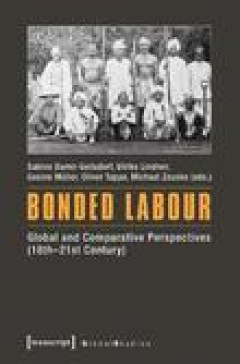
Bonded labour: global and comparative perpective (18th-21st century)
Parallel to the abolition of Atlantic slavery, new forms of indentured labour stilled global capitalisms need for cheap, disposable labour. The famous coolie trade – mainly Asian labourers transferred to French and British islands in the Indian Ocean, Australia, Indonesia, South Africa, the Caribbean, the Americas, as well as to Portuguese colonies in Africa – was one of the largest migrati…
- Edition
- -
- ISBN/ISSN
- 9783839437339
- Collation
- 233p.: ill.
- Series Title
- -
- Call Number
- 331.1173 BON b
Mobilizing labour for the global cofee market
Coffee has been grown on Java for the commercial market since the early eighteenth century, when the Dutch East India Company began buying from peasant producers in the Priangan highlands. What began as a commercial transaction, however, soon became a system of compulsory production. This book shows how the Dutch East India Company mobilised land and labour, why they turned to force cultivation…
- Edition
- -
- ISBN/ISSN
- 9789048527144
- Collation
- 413p.: ill.
- Series Title
- -
- Call Number
- 950 BRE m
 Computer Science, Information & General Works
Computer Science, Information & General Works  Philosophy & Psychology
Philosophy & Psychology  Religion
Religion  Social Sciences
Social Sciences  Language
Language  Pure Science
Pure Science  Applied Sciences
Applied Sciences  Art & Recreation
Art & Recreation  Literature
Literature  History & Geography
History & Geography